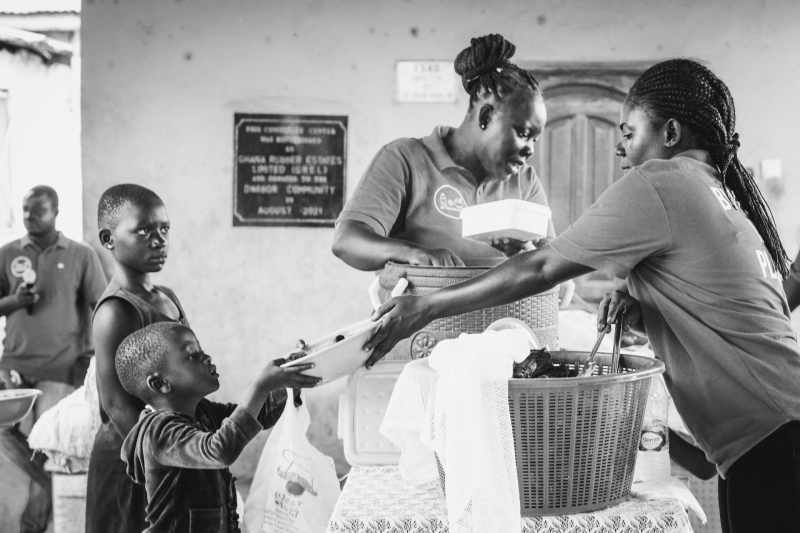Even though you are living in a time of constant connection through your smartphone, social media, or group chats, you might still find yourself feeling unexpectedly alone. Being surrounded by people, yet somehow still feeling disconnected. This growing sense of disconnection reflects a deeper human need to feel part of something bigger.
You may want to feel part of something bigger than yourself, to be seen, to feel at home in your surroundings. That is where community connection comes in. Community connectedness refers to the sense of belonging that arises from sharing experiences, values, and emotional ties with others.
Whether it’s attending a local festival, joining a weekend volunteer group, or getting involved with a hobby club or professional network, engaging with your community makes you feel more grounded. This article explores how community engagement activities help you build stronger connections — and maybe even feel a little more at home, wherever you are.
Whether you have just moved to a new location or are feeling lonely, keep reading. This article explores ideas to help you deepen local ties, support your well-being, and feel more at home where you live.
The role of community engagement in social bonding
Community engagement is not just a trendy concept. It is a powerful, research-backed way to build stronger, more connected communities. In a time when more people feel isolated, it is more important than ever to talk about what a genuine connection looks like.
At its core, it is about people coming together, whether it is with neighbors, coworkers, or others who share a common cause, and working side by side to make a difference.
This can take many forms, such as:
- Neighborhood cleanups
- Local festivals that celebrate cultural diversity
- Volunteer drives to support food banks or shelters, or
- Community art projects that transform public spaces
These efforts do more than improve surroundings. They strengthen relationships and remind people that they are part of something bigger than themselves.
The following section examines how community events serve as powerful tools for fostering meaningful connections.
How community events build social connections
Engaging in social activities plays a vital role in reinforcing an individual’s connectedness, ultimately supporting well-being. Research highlights that indicators of connectedness often include the size of a person’s social network, the frequency of their interactions with others, and the extent of their participation in community or social events.
Having a wide network means you’re connected to a diverse range of people. But it’s not just about numbers — regular, meaningful interactions show that you’re making the effort to stay connected. Participating in social activities helps you build and maintain these bonds, thereby boosting your sense of belonging and overall well-being.
Community events, like festivals or neighborhood celebrations, are powerful ways to bring people together through shared experiences.
These gatherings help break down social and cultural barriers by transforming everyday spaces into places of joy and collective expression. When people come together to celebrate, express creativity, or simply enjoy a moment of communal fun, it becomes easier to start conversations, build new relationships, and connect with those from different walks of life.
These events also strengthen two key types of social connection: bonding and bridging social capital.
Bonding happens when you deepen ties with those you already know — like close friends, family, or longtime neighbors. A small music festival, for example, can give you the chance to reconnect, share memories, and feel closer to your group.
Bridging, on the other hand, is about making new connections. Maybe you meet someone from another neighborhood, background, or generation — all because you both showed up for the same event.
These shared experiences open doors to relationships that wouldn’t happen otherwise.
The psychological benefits of community participation
Involvement in community events offers many psychological and social benefits, fostering a sense of belonging and personal growth.
Being part of a shared celebration can help reduce feelings of loneliness and increase people’s sense of connection to their community. Events grounded in local culture, heritage, and memory allow individuals to discover and rediscover their surroundings, reflect on shared history, and feel part of something larger than themselves.
Below are four key psychological benefits, grounded in recent research:
Read more: Weaving Unity: Essential Tips for Cultivating Community Belongingness
Increased health and well-being
Health and well-being encompass both physical and mental states, including life satisfaction.
Participating in meaningful community activities enhances an individual’s sense of belonging and connectedness, both of which are critical to well-being. A recent research found that a strong sense of community connectedness and engagement in meaningful activities is closely tied to better well-being.
Social bonds can even impact physical health, reducing the risk of conditions such as heart disease, dementia, and depression.
Reduced loneliness
Loneliness is a subjective feeling of being socially isolated or lacking meaningful connection. Community events create low-pressure environments for social interaction, enabling people — especially newcomers or those at risk of isolation — to form connections and feel seen.
Social participation contributes to higher quality relationships, which in turn help buffer individuals from loneliness and its negative health impacts.
Improved self-esteem
Self-esteem is a person’s sense of self-worth or personal value. Taking active roles in community planning, volunteering, or participating in events fosters a sense of purpose and competence.
Feeling valued and recognized in one’s community directly boosts confidence. A study showed that adolescents with strong connections to family, peers, and communities had higher self-esteem and fewer signs of depression, demonstrating how meaningful relationships support positive self-perception.
Stronger emotional resilience
Resilience is the ability to recover from difficult situations by adjusting one’s thoughts, emotions, and behaviors. A key factor that supports resilience is strong social support — reliable relationships with family, friends, or community members who offer encouragement, assistance, and a sense of connection during challenging times.
A sense of inclusion can enhance self-esteem and strengthen emotional resilience, especially when individuals are involved in the planning or volunteering aspects of the events. Volunteering or contributing to community projects fosters personal growth and self-discovery.
Read more: Building Resilience Against Depression
Community engagement project ideas
Small, local initiatives can foster meaningful connections. Some examples include:
- Park cleanups
- Storytelling night
- Community meals, or
- Neighborhood book swaps
Yet for these events to truly succeed, they must be designed with inclusivity in mind. Older adults, people with disabilities, those facing financial constraints, and individuals without reliable transportation often encounter barriers to participation.
Thoughtful planning can make all the difference. Keep in mind the following factors:
- Selecting accessible venues like libraries, parks, or community centers
- Providing wheelchair-friendly paths
- Having multilingual signage, and
- Age-inclusive activities
Most importantly, community projects should be shaped with residents to ensure their needs and perspectives are reflected.
How to strengthen your own social bonds through community engagement
Research shows that engaging in community activities helps strengthen neighborhood connections and nurtures a sense of belonging by creating new relationships while also deepening existing ones.
Close, supportive relationships within familiar groups play a key role in reducing feelings of loneliness. At the same time, broader neighborhood connections contribute to overall well-being and indirectly help ease loneliness.
The next section offers practical, straightforward ways to foster stronger social bonds through everyday community engagement activities.
Start small and get involved
Getting involved in your community doesn’t have to be overwhelming or time-consuming. You can start with small, meaningful steps that fit naturally into your life.
Try attending a local event, like a neighborhood festival, a weekend farmers’ market, or even a Christmas Eve celebration in your area. These gatherings are great opportunities to meet people in a relaxed setting and begin building connections.
If you’re ready to take a more active role, consider volunteering or joining a community committee that aligns with your interests and passions.
Love nature? Join a local environmental group organizing park cleanups or tree-planting days. And if you’re an animal lover, local pet rescue committees or animal shelter volunteer groups can be a wonderful fit.
Small, consistent acts of involvement help you connect with neighbors and community members, creating repeated opportunities for interaction and relationship building.
Read more: How to Be a Good Neighbor
Create your own community project
A strong foundation for launching a community-building initiative begins with establishing trust, which is essential for sustained engagement and collaboration. Based on findings from a recent study identifying fourteen trust-building elements across three central themes, a practical framework can be developed.
- Safe and inclusive environments. Start by fostering a welcoming atmosphere where individuals feel secure, respected, and heard. Safe spaces encourage open dialogue and help build genuine relationships.
- Transparency. When seeking support, be clear and open about the goals, intentions, and potential impact of the initiative. Demonstrating transparency and a spirit of goodwill helps establish credibility and encourages others to join the effort with confidence.
- Local engagement through collaboration. Involve community members in decision-making processes. Empowering individuals through shared ownership strengthens commitment.
Build long-term relationships
Ongoing involvement is crucial. Consistent participation, continuous communication, and mutual support turn casual acquaintances into reliable friends and allies. Being consistently engaged demonstrates dedication and builds stronger trust over time.
Be present in conversations. Listen actively, ask questions, and show appreciation. Whether you’re chatting in person or online, thoughtful and respectful communication builds rapport and shows people they matter.
Consistency builds trust. When you show up regularly — whether it’s helping out at community cleanups, attending monthly meetings, or simply stopping by familiar neighborhood spots — you become a familiar, trusted face. Over time, people come to rely on your presence, and that mutual support lays the foundation for deeper, more lasting relationships.
In conclusion
In an era when loneliness often feels like the norm, community engagement provides a welcome antidote.
The science is clear: shared experiences, whether at festivals, volunteer projects, or neighborhood gatherings, remind people that belonging is not a privilege for the few but a possibility for anyone willing to take the first step.
This article has explored how engagement in community activities forges deeper bonds, combats isolation, and even boosts resilience. But insight alone is not enough.
Do not wait for an invitation. Join a local cleanup. Say “yes” to that volunteer role. The relationships built there will not only strengthen a community, but they will also remind everyone involved that we are better together.
If you want to see more resources on community connectedness, check out the Wellbeing Science Labs. The lab uses the research of the Institute of Life Management Science to produce courses, certifications, podcasts, videos, and other tools. Visit the Wellbeing Science Labs today.
Photo by Khalil Radi on Unsplash


